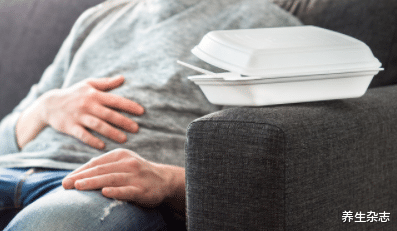Our company’s leader had suffered from chronic stomach issues for many years and had visited numerous hospitals without improvement. Surprisingly, he was effectively treated by a traditional Chinese medicine practitioner with a simple dietary regimen. This practitioner happened to be my mentor during my university years and taught me a valuable lesson: the importance of “food nourishment over medicine supplementation.”
Despite being in his 40s, our leader, due to poor digestion, had a pale complexion, yellowish and pigmented skin, making him appear older than his age. Upon deeper conversation, I discovered several key issues: always feeling tired and sluggish.
Our leader had a habit of walking up five flights of stairs after taking the elevator, a routine he had maintained for over a decade. However, in recent years, climbing just a few flights made him feel chest tightness and shortness of breath, expressing how every movement felt exhausting as if carrying heavy weights on his limbs. Additionally, he suffered from bloating, stomach pains, and weight loss.
During my eight years at the company, I noticed our leader used to be quite overweight, but now he had lost a significant amount of weight. Even a small meal would cause his stomach to bloat, his appetite diminishing over time. He struggled to eat, as his stomach always felt bloated and painful, even experiencing stomachaches after skipping meals or consuming certain foods.
Moreover, he had a low tolerance for cold temperatures, always avoiding air conditioning drafts in summer and bundling up excessively in winter to combat cold drafts, resembling a round penguin. Cold foods aggravated his condition, leading to frequent episodes of diarrhea. He also suffered from insomnia, vivid dreams, and dizziness upon waking up.
Previously, he could fall asleep around 11 p.m., but in recent years, he often struggled to sleep before the early hours of the morning, feeling overwhelmed by racing thoughts and experiencing physical discomfort leading to dizziness and shortness of breath upon waking up. His overall resistance to illnesses had significantly weakened, making him vulnerable to heat strokes in summer and catching colds in colder weather.
Expressing his frustration, our leader remarked, “These old bones are becoming increasingly useless.” Realizing his weakened constitution, I suggested consulting a renowned traditional Chinese medicine practitioner specialized in treating stomach issues. The same day, after work, I drove our leader to see this practitioner, Dr. Zhang.
Dr. Zhang, a retired professor and my former university mentor, immediately recognized our leader’s symptoms and emphasized the importance of food-based nourishment over medicinal supplementation. He recommended a dietary therapy known as the “Eight Treasures Cake,” a gentle and nourishing remedy specifically tailored for individuals with weak digestive systems.
Dr. Zhang explained that the cake’s ingredients, such as hawthorn, lotus seeds, poria cocos, coix seed, white hyacinth bean, and Chinese yam, were selected for their beneficial properties in aiding digestion, improving appetite, dispelling dampness, and enhancing overall digestive function.
Following Dr. Zhang’s detailed guidance, our leader was receptive to the dietary changes and committed to consuming the Eight Treasures Cake daily. Within a week, his appetite improved, bloating reduced, and within a month, his stomach pains decreased significantly, with a noticeable improvement in overall vitality and productivity. He even proudly stated that he could climb five flights of stairs effortlessly once again.
Witnessing our leader’s remarkable recovery, I understood why Dr. Zhang advocated for the Eight Treasures Cake. It truly proved to be an effective remedy for nurturing weak digestive systems. I encourage others with similar digestive concerns to consider incorporating this recipe into their diets or opt for the ready-made version.


